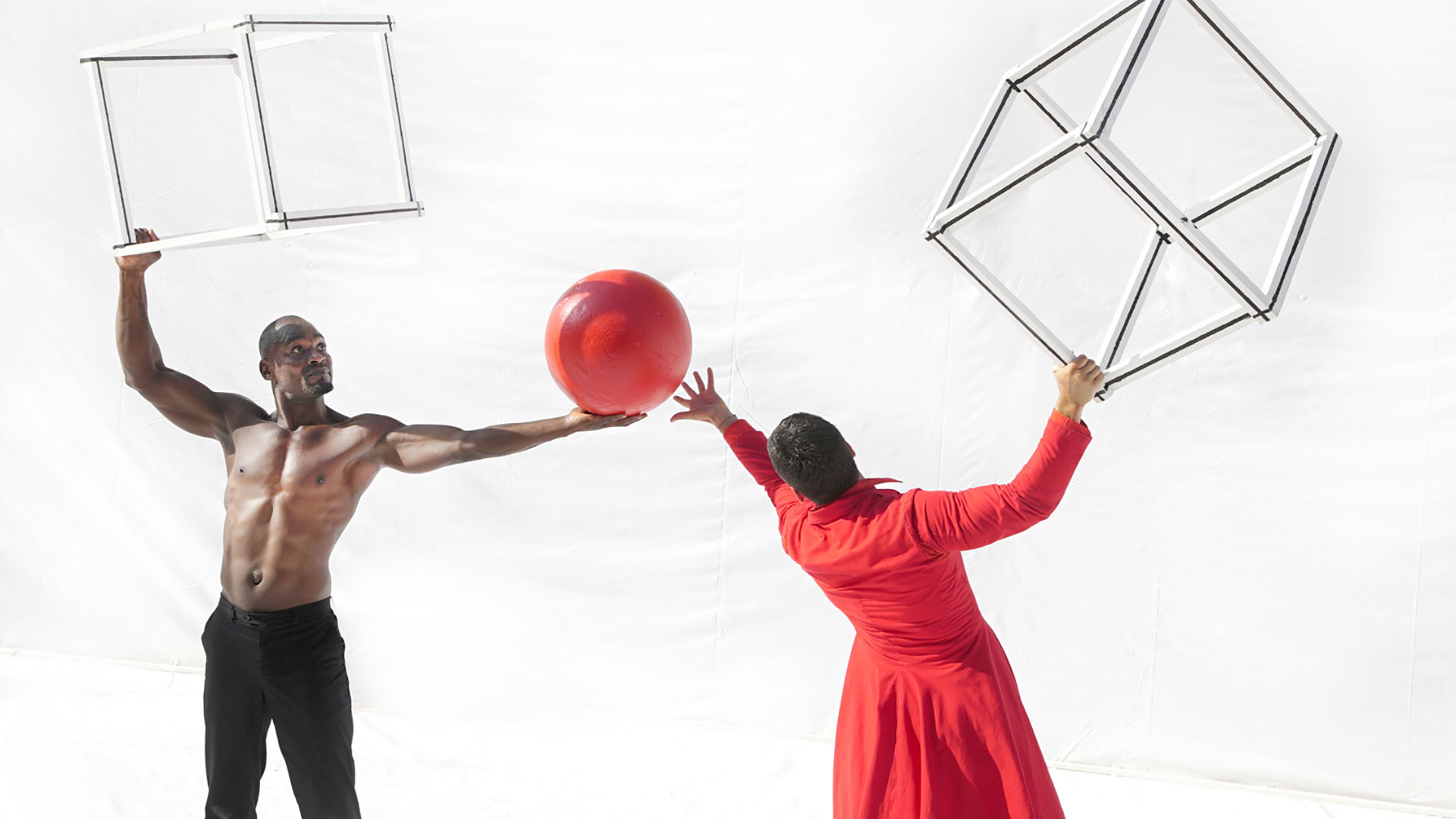

Thirty-five years of dedicated, full-time work, collaborating with approximately eighty inmate-actors on a daily basis: directors ricci/forte award the Golden Lion to cult founder of Compagnia della Fortezza di Volterra.
A life spent in prison, without being an inmate, to create cultural and mental freedom and to take non-professional theatre to the highest levels. This, in short, might be Armando Punzo’s biography. Punzo (b. 1959) is the founder of theatre company Fortezza di Volterra, the first to be established (in 1988) within a correctional facility, and is awarded the Golden Lion for Lifetime Achievement at the 2023 Venice Theatre Biennale.
The Award
One thing I wonder – if a given idea is there, and one works on it and dedicates their life to it, it might take a long time, but in the end, that very idea will get big, and get real. This is how I feel about the Golden Lion. Something that I started thirty-five years ago, something that needed so much effort and so much work, hasn’t been in vain. It is an idea, now, that can be recognized and acknowledged for what it is. That’s what counts. Whatever the personal recognition may be, the Golden Lion is all about one beautiful idea.
Theatre, prisons, art
The theatre I make in prison is, above all, art. There are other ways and other experiences that use theatre as a tool for rehabilitation. To be frank, this idea of theatre serving a goal does not convince me at all. Art is contradictory, it must be free. I have never seen my experience at the Fortezza as an idea of saving anyone. If I ever had to save someone, I’d be needing to save myself first! I entered the prison for a different reason: I thought Theatre had to be re-established, and challenged in a difficult place. I wanted maximum openness and maximum closure to react.

The Company
I am there every day. As soon as I started in 1988, I understood that I just couldn’t leave at any time. Prison is like a black hole that eats everything, it is its nature. Prison has been created with the deliberate intent to annihilate basic human nature and eat anything positive that could have happened inside. This job I chose is a daily fight. The Company comprises over eighty people. In-house shows are produced by anything from sixty to eighty people, while when we are on tour, obviously not everybody can come. This is why we make two parallel productions, one for the inside and one for the outside. Last summer, some thirty people were granted permission to tour, which is a high number, given the circumstances.
Your upcoming show, Naturae
Naturae came after eight years of work. In brief: eight years ago, we started working on Shakespeare and the humanity Shakespeare wrote about. His characters look like us, dramatically, tragically, both the good and the bad. We wondered if it was about time to question if humankind was actually destined to be that way forever, because after four centuries, not much seems to have changed. We worked on the demolition of Shakespeare and produced Dopo la Tempesta (lit. ‘after the tempest’). Our idea was to never stage anything that could be read under the classical canons of theatre. The lead character stops, surrounded only by ghosts, and realizes that nothing he does makes sense anymore. Enter a small child – innocence personified. The child takes the lead actor by the hand, and offstage they go, leaving humanity hanging and embarking on a journey towards new possibilities. In the meantime I read Borges, an author that may accompany us and tell us where to take this lead actor. With Borges and Beatitudo, we worked on a more two-dimensional kind of humanity. After two years, this show also comes to an end, the child is back, once again taking the actor away. What we will show in Venice is the last phase, the naturae (lit. ‘natures’) are part of the human being that may look unimportant, like harmony, which we all know well but we don’t nurture much. We then worked on the idea of so-called ‘secondary’ human qualities that do exist, but are neglected. Our show is an attempt to tell the story of a man who gives life to his natures, showing what will happen if we just give more space to our qualities. We are not prisoners of the human nature Shakespeare wrote about. To most, the topic of being human in all its unravelling complications always look interesting, but to me… I find it a bit shallow, obsolete, and dusty.
Featured image: Naturae © Stefano Vaja